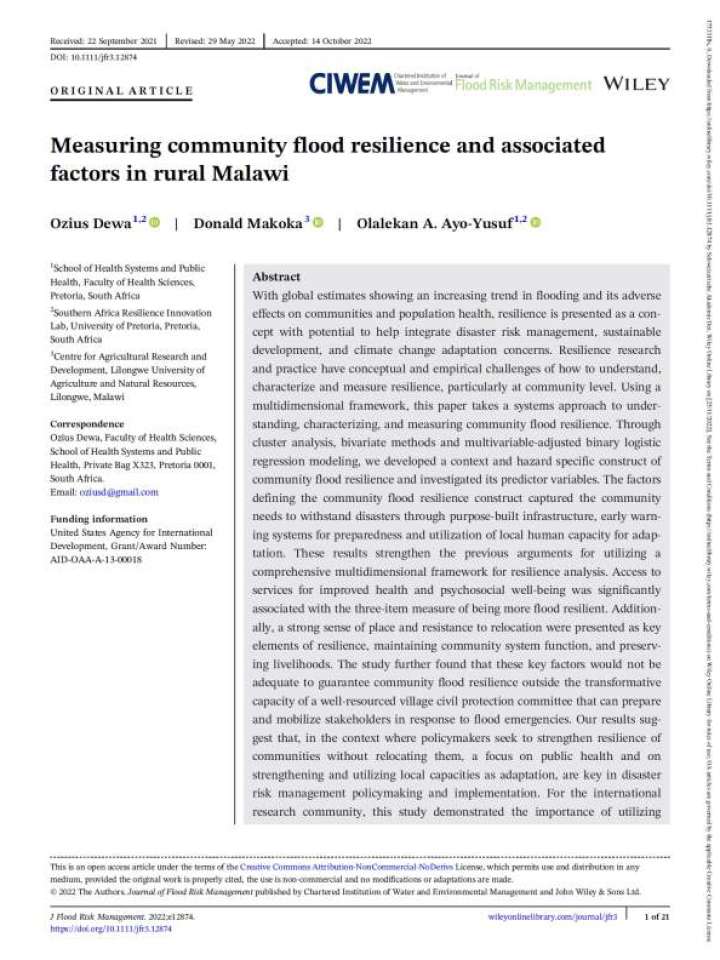Measuring community flood resilience and associated factors in rural Malawi
This paper uses a multidimensional framework to take a systems approach to understanding, characterizing, and measuring community flood resilience. Through cluster analysis, bivariate methods and multivariable-adjusted binary logistic regression modelling, the authors developed a context and hazard specific construct of community flood resilience and investigated its predictor variables.
The factors defining the community flood resilience construct captured the community needs to withstand disasters through purpose-built infrastructure, early warning systems for preparedness and utilization of local human capacity for adaptation. These results strengthen the previous arguments for utilizing a comprehensive multidimensional framework for resilience analysis, and suggest that, in the context where policymakers seek to strengthen resilience of communities without relocating them, a focus on public health and on strengthening and utilizing local capacities as adaptation are key in disaster risk management policymaking and implementation.
Explore further
